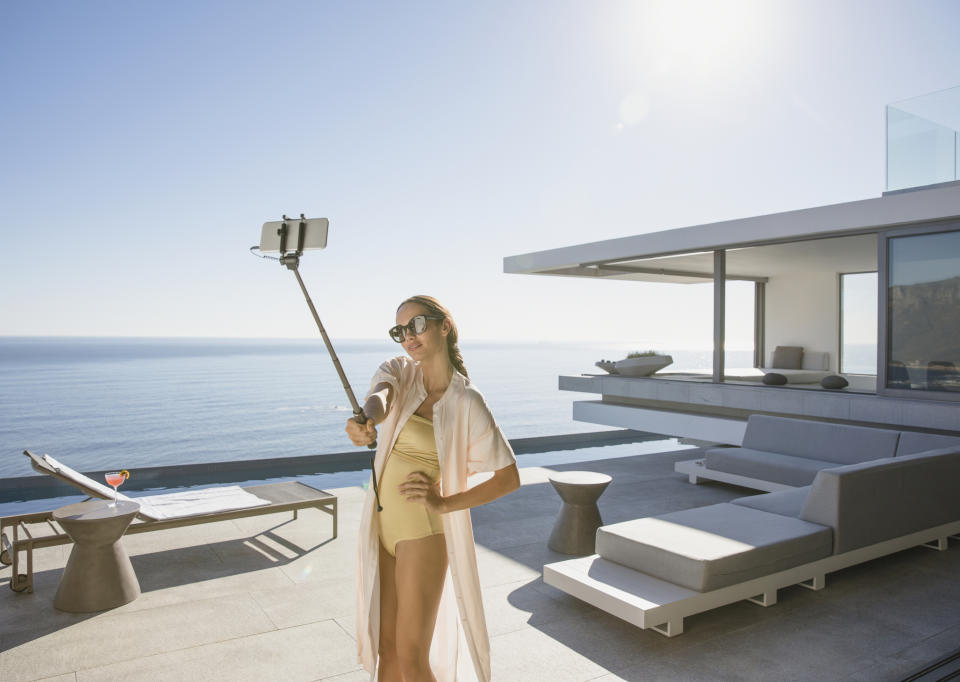4 ways to invest in property with just $1,000

Even though Australian real estate prices have fallen in the past 18 months, housing remains out of reach for many people.
But if you were ever envious of friends that had investment properties, and thought that you’d like to make your money work harder with bricks-and-mortar, there are ways to get into the market without having to stump up hundreds of thousands of dollars for an entire house or flat.
Not to mention having to pay stamp duty, which can end up more than $40,000 for a million-dollar house in Sydney, and being able to sell and buy out of investments without going through time-consuming marketing campaigns, auctions and settlement periods.
Here are some of the common options to invest in real estate with just $1,000:
1. Real estate investment trusts (REITs)
These trusts, or REITs, are big pools that you can invest in where the fund managers will use that capital to invest in real estate. The trust could be buying and selling residential, commercial or industrial buildings.
The trust will manage the properties, and return any rental income back to the investors, minus a commission for the trust managers.
Many traditional REITs have a minimum investment amount, but these days REITs also exist as exchange-traded funds (ETFs), which means the only minimum is that you have to buy one share on the stock market.

Giving your money exposure to multiple properties is good for diversifications, but with REIT ETFs, the value of your investment can be volatile as it is vulnerable to the whims of the stock market – i.e. the demand of other people who want to buy into the trust.
Some examples of REIT ETFs are Westfield (shopping centres), Goodman (industrial), Ingenia (residential) and Vanguard Australian Property Securities Index ETF (index).
2. Fractional investing
Fractional investing involves pooling together many people’s money to buy one investment property. You then have a small stake in that property, according to what percentage of the overall value you invested in.
A recent example of this system is Sydney fintech BrickX, which has 19 houses and apartments in Sydney, Melbourne, Ballarat, Adelaide and Perth.
BrickX divides each investment property into many units called “Bricks”, which can then be bought and sold by individual investors. The company runs a marketplace where people can put up their Bricks for sale and those interested in buying can bid for them.
“I see an opportunity to create a more even playing field for all Australians to benefit from changes in the property market without needing to buy a whole property,” BrickX chief executive Kareene Koh says.

3. Rent out spare space
You might already own some spare space that you could spruce up. Then apps like Airbnb and Spacer can step in to find people willing to use that space for a fee.
Airbnb allows spare bedrooms or even spare couches to be rented out as accommodation. Some cities have restrictions on how many weeks in a year this can be done on one property before the owner is liable for hotel taxes, so please check local regulations.
Australian-built Spacer is the equivalent for storage space and car spaces. If you have an empty garage that’s not going to any use, you can let someone else use it for storage to make some cash.
Empty driveways are also ripe for income production. Sydney’s Oscar app is a marketplace that allows people searching for a driveway spot to book one without ever having to meet the property owner face-to-face. The two founders got the idea after spending hours finding street parking at Bondi Beach.
Related story: PICTURES: Just $82 will buy you a slice of this Perth house
Related story: Young couple accidentally buys 120-year-old run-down mansion
Related story: $450-flat with kitchen in garage sparks outrage

4. Dollar bargains
Occasionally, you will come across a city or town where houses are on sale for ridiculous prices. An example from just this year include the US city of St Louis – where the local government is selling off derelict public housing stock for US$1 (AU$1.41) each – and the Italian village of Sambuca di Sicilia, which was selling €1 (AU$1.58) houses to fight a shrinking population.
Japan, which has suffered from a decreasing population for several decades, is even offering abandoned houses for free, as elderly residents pass away.
But there is almost always a catch with these bargains. Usually there will be an obligation on the new owner to perform repairs and maintenance, which could be costly – certainly more than the $1,000 budget we have for this article.
Disclosure: The journalist owns shares in Vanguard Australian Property Securities Index ETF.
Make your money work with Yahoo Finance’s daily newsletter. Sign up here and stay on top of the latest money, news and tech news.

 Yahoo Finance
Yahoo Finance 